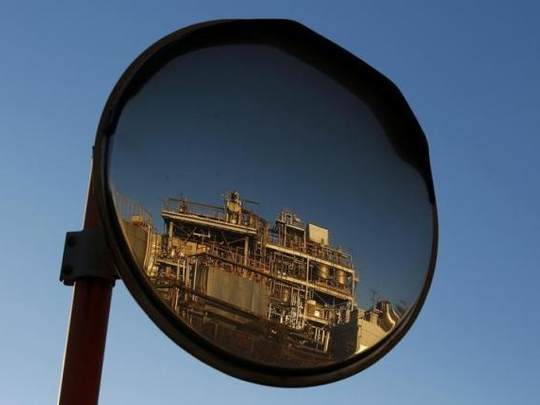
Tokyo: Oil prices rose for a third day to hit their highest in about eight months on Wednesday, boosted by industry data showing a larger-than-expected drawdown in US crude inventories, worries about attacks on Nigeria's oil industry and strong Chinese demand for oil.
London Brent crude for August delivery was up 2 cents at $51.46 a barrel, after settling up 89 cents on Tuesday. It earlier touched $51.57, the highest since October 12.
Nymex crude for July delivery climbed 9 cents to $50.45 a barrel, after touching $50.58 earlier, the strongest since October 9.
US commercial crude inventories fell by 3.6 million barrels last week, data from industry group the American Petroleum Institute showed on Tuesday after market settlement, compared with expectations for a 2.7-million barrel draw according to a revised Reuters poll.
The US Energy Information Administration (EIA) will issue official inventory numbers on Wednesday.
"Chinese trade data showed on Wednesday that its crude oil imports rose 38.7 percent in May from a year ago — the biggest jump in more than six years — and added to hopes that the economy of the world's second-largest oil user may be stabilising.
"Overall, China's economic activity is not slowing down as much as expected, which is a support to the market," said Kaname Gokon at brokerage Okato Shoji.
$60 by yearend?
Industry officials like Superior Energy CEO David Dunlap anticipate prices will hit $60 per barrel by the end of the year.
"In the second half we're going to continue to see prices migrate up as the market begins to realise that non-Opec production is coming down, including shale production here in the US, and we're going to be getting closer and closer to that supply-demand balance," he said in an interview with CNBC's Power Lunch.
Worries about global supply disruptions and expectations for oil market rebalancing also supported the market.
The southern Delta swamps in Nigeria have been hit by militant attacks on pipelines which have brought its oil output to a 20-year low, and the government said to scale down a military campaign and talk to the militant group.
Takayuki Nogami, senior economist at Japan Oil, Gas and Metals National Corp (Jogmec), said the start of the summer gasoline demand season, supply disruptions in Nigeria and Canada and a weak dollar because of a possible delay in the timing of a US interest rate hike helped push up the market.
"The Nigerian militants have pledged to continue attacks until production becomes zero, so there are worries over a further slump in output," he said.
Still, concerns about global oil demand remained. The World Bank slashed its 2016 global growth forecast on Wednesday to 2.4 per cent, while China's central bank stuck to its growth forecast of 6.8 per cent this year.
The market was little changed after Reuters reported North Korea has restarted production of plutonium fuel in defiance of international sanctions.












